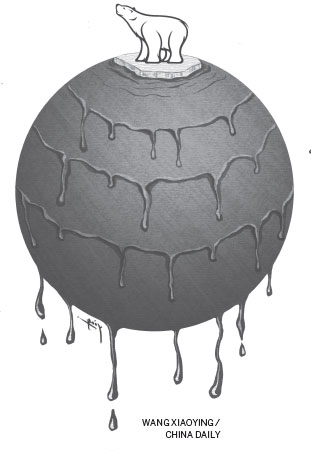
The Paris conference marks the 21st meeting of the Parties of the United Nations Framework Convention on Climate Change. The UNFCCC was adopted in Rio de Janeiro, Brazil, in 1992, but the past two decades of negotiations have been tainted by disputes, distrust, stagnation and pessimism. The Kyoto Protocol, adopted in 1997, was a first attempt to shape global climate governance in a top-down manner, which set a global target of greenhouse gas mitigation and then disaggregated the effort among countries deemed responsible. The need for climate finance and technology transfer was identified with the coordination of the UN.
But in 2001, the US with drew from the Kyoto Protocol, a major setback in efforts to coordinate an international solution since the United States was then the world's largest carbon emitter. A crisis of failure became imminent as several more developed countries followed suit. Although the Kyoto Protocol held together in the end, the climate regime proved unsuccessful in rallying a truly inclusive, global effort to address climate change.
Then, the Copenhagen conference in 2009 was invested with overwhelming expectations, proclaimed by a broad selection of policymakers, scholars, and activists as the last chance to save the world. With Denmark playing host, the European Union worked hard to achieve a new agreement in the style of Kyoto that the media and environmental NGOs demanded be ambitious, fair and legally binding. However, these expectations were not met, with an eleventh hour deal struck without the EU on site. The Copenhagen conference was the last attempt at a top-down approach, a style of global coordination that was doomed to fail because most of the world was not prepared to follow.

I’ve lived in China for quite a considerable time including my graduate school years, travelled and worked in a few cities and still choose my destination taking into consideration the density of smog or PM2.5 particulate matter in the region.